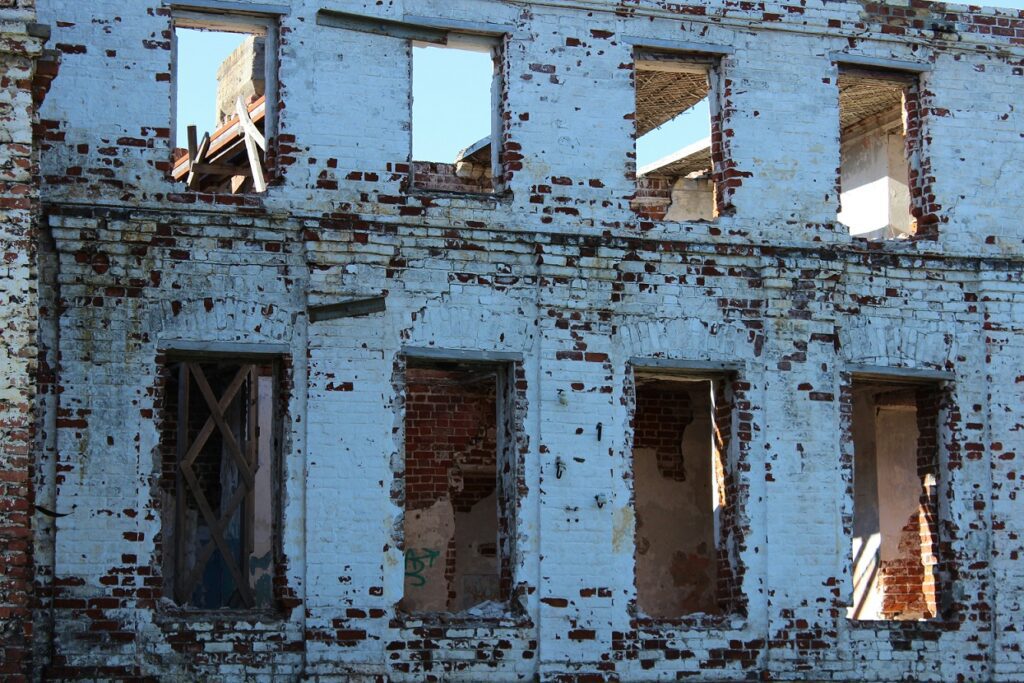Here’s a recent hobby I took up, which I really wish I didn’t: reading comments on Instagram posts.
Yikes!
If you’re wondering what the bottom 10% of society thinks, here’s where you’re going to find the answers!
I especially love reading the comments on anything to do with politics in the United States at the moment. Whether you’re left or right, Biden or Trump, Manhattan or Tuscaloosa, you’re likely not without an opinion.
But the amazing thing is: all of them blame the media for disseminating false information!
I swear, it’s like flipping a coin and having it land on its edge.
How in the world can left-wing and right-wing media report on the same story, from two different perspectives, and both be wrong?
This past June, Reuters Institute released their annual “Digital News Report” that provides insight into trust in journalism.
According to the study, only 42% of Canadians trust “most news, most of the time.”
That’s down from 45% in 2021. It’s also down substantially from 55% in 2016.
Even worse, only 29% of Canadians believe in “news media’s independence from both political and commercial influences.”
This is down from 43% in 2016.
To be fair, I don’t know why this isn’t zero percent, but I digress.
Over the last few years, it seems as though many people have accepted social media as a bona fide news “source.” Perhaps this was completely unavoidable, and perhaps there will reach a time when more people go to Twitter for news than CBC, CNN, BNN, or, um, FOX.
As it pertains to my occupation, and as a result – one of my greatest interests and passions, I have always taken the media to task for how they report on real estate.
On the way up, the media reports on how unaffordable the market is for buyers.
On the way down, the story shifts and focuses on the trials and tribulations of sellers.
If it bleeds, it leads.
And there’s no sense in trying to focus on anything that’s fair, right, just, impartial, easy, comfortable, painless, or uncomplicated.
Maybe I don’t blame the media, however.
How can a newspaper expect people to read about unspectacular real estate statistics when a there are photos of your best-friend’s lunch on Instagram?
“Did you see the sea urchin seviche that Becky had at Dorsia this afternoon?”
Who cares about housing completion data when there’s shaky iPhone footage of Drake walking through Yorkville and getting into a car?
(sigh)
We need hard-hitting, controversial, and complicated stories about real estate in order to get attention!
Perhaps that’s why every headline I read is about this massive drop in real estate prices on the horizon?
Two years from now, nobody, and I mean nobody is going to care which newspaper or which columnist was “right” about the market.
Nobody will remember, but even if they did, nobody will care.
The proverbial top prize or gold medal for journalism no longer hangs around the neck of the person who was the most accurate, but rather he or she who got the most clicks.
Over the last three weeks, I have lost count of how many real estate articles I’ve read that feature the words drop or decline, accompanied by an eye-popping percentage. I’ve kept a short list here, but it’s not quite complete.
What I want to know is why.
Why is the market going to drop, according to these media outlets?
What’s the rationale? And who is the authority figure?
Let’s look at a few of these headlines and then dig into the articles themselves.
“Canadian Home Prices Set To Drop By Almost 25% By End Of 2023: Desjardins”
Financial Post
August 11th, 2022
From the article:
The average home price in Canada is expected to fall 23 per cent by the end of next year, predicts Desjardins Economics, in a significant downgrade to its earlier forecast.
What does this mean?
23% from today? Or 23% from the peak?
Maybe 23% from January 1st of 2022 through December 1st of 2023?
This is what bothers me about articles like this.
I mean, that, and the fact that the headline said “almost 25%” when the figure is 23%. They could have just said “23%” but they didn’t. They rounded up, which is “almost,” but to be fair, they could have rounded down to say “around 20%” and they’d still have been accurate.
The rationale:
“We continue to believe that home prices will generally fall the most over the forecast in provinces that saw the largest gains during the pandemic,” the economists said.
Desjardins predicts New Brunswick, Nova Scotia and P.E.I. will bear the brunt of a sharply correcting market with prices falling by 29, 27 and 25 per cent, respectively, from the peak in February 2022 to December 2023 after having risen 71, 67 and 62 per cent from December 2019 to February 2022.
“We continue to believe that provinces that saw the biggest price gains during the pandemic are most likely to see the largest price corrections,” the economists wrote.
In B.C. and Ontario, Canada’s housing juggernauts, where “the correction … has been more abrupt than elsewhere,” Desjardins estimates that prices will fall 22 and 24 per cent, respectively, from the peak to December 2023. From December 2019 to February 2022, they rose 43 per cent and 58 per cent on an average basis.
Here, they clear up the confusion about where these figures start and end, but I fear most readers have already stopped reading.
But here’s a fun game, let’s use their own stats to re-write the headline!
The “average home price in Canada is set to decline 23%” from the peak in February through December of 2023, right? But if the average price has already declined by 18.5%, then our new headline could read:
“Average Canadian Home Price To Remain Steady; Only Set To Decline Up To 4.5% Through End Of 2023”
Not quite as sexy, is it?
–
The amazing thing about a simple two-page report from Desjardins, which notes the market could drop 23%, or up to 25%, by the of next year, is that it’s going to be reported on by all media outlets, who all create their own headlines, like this one from the Globe & Mail:
“Canadian Home Prices Could Drop By 25% By End Of Next Year, Report Says”
Globe & Mail
August 11th, 2022
But wait – how much?
23% or 25%?
The first article said “almost 25%” in the headline and then noted in the article that it was actually 23%.
But this second article’s headline says 25%.
What does it say in the article?
Canada’s average home price could drop by as much as 25 per cent from peak values in February by the end of next year, with the Maritimes and most of Ontario shouldering greater declines owing to the sharp jump in borrowing costs, says a new private-sector forecast.
Who cares, right? It’s only two percent. To hell with accuracy and consistency!
Not only that, your friend, who seems to always be on vacation, has just posted some photos on Instagram of a champagne tower at an Ibiza nightclub! Get on the ‘gram!
Whether you read the Financial Post article above, the Globe & Mail article that followed, or the actual report from Desjardins, you should know that this isn’t exactly rocket science:
In June, Desjardins economists predicted a 15-per-cent decline in the average price from February to the end of 2023. Now, Desjardins expects a decline of 20 per cent to 25 per cent.
No kidding, eh?
So let me get this straight: in June, you predicted a 15% decline. Then home prices dropped 6%. Now, you’re predicting a 20-25% decline.
And this is an actual occupation?
Oh, man, imagine if it worked like this in sports?
“The Bengals are gonna win this game. I’m taking the money line at +200.”
The Bengals are up by 14 points at halftime.
“The Bengals are gonna win this game, by a lot. I’m taking the spread at -7.”
I understand that in the equities market, analysts will “revise earnings expectations” all the time. But it just seems so meaningless in the real estate context above.
Then there’s this:
In Ontario, it expects an average price decline of 24 per cent, with values falling 22 per cent in Toronto and 27 per cent in the rest of the province
The average Toronto home price is down 20% since February.
This report suggests that the average Toronto home price will decline 22% by the end of 2023.
What in the world are we even talking about?
–
Here’s another article:
“Canada’s ‘Housing Hangover’ And Why Prices Will Continue To Drop Into 2023”
Globe & Mail
August 16th, 2022
Great headline!
“Why prices will continue to drop in 2023.”
Yes. Perfect. It says “why.”
I want to know why. I want to know that more than anything.
However, this isn’t really an “article” as you might expect, but rather it seems to simply contain three market outlooks from economists at BMO, Morgan Stanley, and Bank of America.
Here’s Morgan Stanley’s economist’s thoughts:
“The Morgan Stanley Supply Chain Index (MSSCI) keeps dropping. MSSCI continued its downward trajectory in July with a substantial drop, -15% MoM in July (after -20% in June). The factors explaining the improvement are: (i) a sharp drop in the cost of transporting raw materials by sea, measured by the Baltic Exchange Dry Index (-13% MoM), (ii) an important decrease in delivery times in Korea and UK, and better backlogs in Taiwan, and (iii) an incipient drop in containership charter rates. Supply chains are still under stress, and we are still far from normal levels, but July’s print confirmed the break we saw in June and we do not see signs of a slowing pace of improvement”
I’m sorry, but what the hell does this have to with the Canadian real estate market?
Yeah, I get it: supply chain et al.
But for an article’s headline to read “Why Prices Will Continue To Drop Into 2023” and then have somebody talk about delivery times in Korea and Taiwan makes zero sense to me.
In actual fact, I think this article was meant to be a round-up of topics, but whereas it starts with a quote from BMO’s economist about real estate, it delves into supply chain data, and then finishes with a survey about global portfolio managers. But none of that was in the headline. The headline was merely about Canada’s declining real estate market.
–
Here’s another one:
“Posthaste: Bottom Still A Ways Off For Canada’s Housing Market, Says RBC”
Financial Post
August 16th, 2022
The subheading here: “Country’s largest bank sees prices dropping 12% nationwide before it’s over.”
But didn’t the first article predict a 23% drop?
Is the 12% drop the total or is that from today?
The headline talks about prices but the accompanying photo of a for-sale sign notes that sales were down 5.3% in July, of course, not explaining if that’s month-over-month or year-over-year.
The article quotes a “note” from RBC economist, Robert Hogue, but doesn’t mention if this “note” was published and sent as an eNewsletter or if was written on a piece of paper and stealthfully passed among the students, hand-to-hand, from one end of the classroom to another.
Wait, I guess kids today just text each other?
Some of you know what I’m talking about…
“And the bottom is likely many months away still as our central bank has more work to do,” says Mr. Hogue.
But the hard-hitting stuff has yet to come:
“We think these provide growing evidence a generalized downturn is underway in Canada,” said Hogue.
No kidding?
A 20% decline in average home price in the GTA and you figure that a downturn is underway? You don’t say!
Then comes this:
By that time prices nationally will be down about 12% from peak, RBC predicts. Ontario and British Columbia could see declines that exceed 14%.
Do these people have access to TRREB stats? The average GTA sale price is down 20% since February, on average, and RBC is predicting a 14% decline in Ontario – through 2023?
New headline:
“Ontario Real Estate Prices To Soar In Early 2023: RBC”
–
Last, but not least, I can’t even stomach this headline:
“King Township Homeowners Struggle With ‘New Normal’ After 50% Price Plunge”
Toronto Star
August 7th, 2022
This is insane.
They are using a sample size of twenty sales to provide an “average” on which to draw comparisons.
Twenty.
I understand that reporters have backgrounds in, um, journalism (we assume…) and not statistical analysis but isn’t there a course in school on common sense?
Can we just admit that the Toronto Star wanted to have “50% price plunge” in a real estate headline?
–
Folks, your guess is as good as mine as to what happens with the average home price in Toronto this fall, and I’m sure we’ll continue to debate this over the coming months.
But if you look to the media for their great expectations, you have to already know what they’re going to say…
































Appraiser
at 7:48 am
Since June 1, 1980 with the launch of CNN and the dawning of the 24 hour news cycle, much of main stream media has slowly devolved into a mash-up of constantly but mostly imaginary “breaking news” supplemented with large doses of sensationalism, hyperbole, gossip and pure conjecture.
Graham
at 8:35 am
How the hell did Becky get a reservation at Dorsia? Probably knows the maître d’?
David Fleming
at 4:19 pm
@ Graham
Definitely wasn’t a Saturday night at 8pm, that’s for sure!
Condodweller
at 11:12 am
I’ve got an idea. Why don’t we wait a few months and find out?
Mike
at 2:26 pm
So says a person who won’t put his money where his mouth is.
Waiting to find out doesn’t help those looking to buy or sell right now. That’s reason for the blind speculation!
Condodweller
at 3:40 pm
No idea what you are talking about.
People need to decide for themselves what to do. It’s pretty straightforward. If you’re buying and need a home now seems like a great time to buy with prices down, no to little compatition. Especially if you can’t afford or qualify if prices go up in the fall.
If you are selling, you can get today’s market value. You can wait until fall hoping for prices to go up but if they go down don’t come crying that you can’t get August prices.
Mxyzptlk
at 8:35 am
“Waiting to find out doesn’t help those looking to buy or sell right now.”
But neither does “predicting” (aka guessing) what the market will do in the next few months, which is what everybody and their mother loves to do. As Condodweller said, it’s up to the individuals to decide what’s best for them, damn the “predictions” (especially those from nameless, faceless commenters on a real estate blog).
Vancouver Keith
at 3:33 pm
Inflation is falling, not much but a possible trend reversal. Central bank nterest rates will move through the neutral zone over 3%, and hopefully inflation continues to go down.
At the moment, the hoped for and difficult to achieve soft landing seems to be on the table, and perhaps a better real estate market will emerge. A balanced market is not as wonderful for sellers and agents, but it would shake out the industry by kicking some people to the curb who aren’t going to make it, and make life for buyers a little easier.
Candace
at 1:17 am
Wow, as someone who has made some good choices in this market and now struggling to play my cards right during a confusing time, this article and a few comments had me genuinely laughing out loud throughout.
Thanks David, Appraiser, and Graham. That levity somehow brought me some clarity 🙂
Steve
at 6:50 pm
I love RE, and this site does a great job in getting behind some of the crazy stuff we read in the papers or online. My humble take on how most property is priced is centered around interest rates since most people buy on credit. Rates up, values slide. It’s that simple.
Watch the bond market for clues about where we might be headed.
Ace Goodheart
at 11:29 pm
Possible scenario:
1. Supply chains get messed up post COVID, leading to goods scarcity, which in turn drives up prices.
2. Central banks notice this, mistake it for hyper inflation, and get aggressive with rate hikes
3. Rate hikes shock everyone. People stop spending. House prices tank. At the same time, supply chains get sorted out, and goods start flooding the markets again. This situation drives down the price of everything.
That is where it looks like we are now.
So what happens when the central bank figures out that we didn’t actually have hyper inflation? End of rate hikes? Maybe a small decrease?
What happens when everyone has to move back to Toronto again because no one is allowed to work from home anymore?
Will it seem, six months from now, absolutely bonkers that we did not take advantage of the current Toronto real estate price decline to purchase cheap houses, when you can do it now with conditional offers, under asking, no “offer nights”, no competition and desperate sellers who think the world is about to end?
Is now not the best time ever to buy a house in Toronto? The best buying opportunity in probably 14 years?